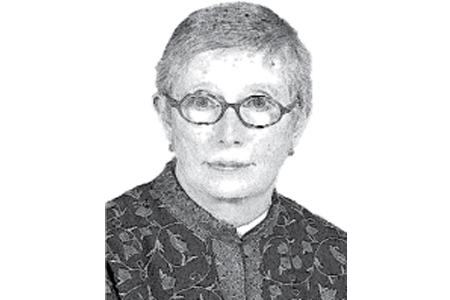
Afrasianet - Michael Jansen - The western missile attacks on alleged Syrian chemical sites pre-empted the visit to the town of Douma, east of Damascus, by experts from the Organisation for the Prohibition of Chemical Weapons, who were charged with discovering whether or not the Syrian air force had used such weapons in strikes on April 7. The US, UK and France fired 105 mainly cruise missiles at three targets in response to claims of chemical agents by activists, medics and rescue workers embedded with Jaish Al Islam. The group had refused to follow the examples of three other takfiri groups, which had evacuated Ghouta and travelled to the Turkish-occupied zone in northern Syria.
In the weeks ahead of the alleged chemical incident, Russia repeatedly warned that an attack could be expected, but Moscow's concerns were dismissed. Russian officers who visited the declared site of the chemical attack said they found no trace of chlorine or nerve agents. They were ignored as an interested party, while medics and activists tied to Jaish Al Islam in Douma were believed. No independent evidence was provided to substantiate or dismiss the charge.
Damascus and its allies, Moscow and Tehran, argued the opposition claim of a gas attack was a "fabrication" intended to condemn all three, put them in a corner and provoke retaliation, risking a military response by Russia and Iran. Fortunately, the US, UK and France carried out tactical strikes that did not provoke retaliation.
Journalists from Western media, who visited Douma on Monday, were told by doctors and medical students, who were in the town at the time of the alleged gas attack, that the reason for death and distress was oxygen starvation during heavy bombing. This would be “hypoxia” caused by air being sucked out of crowded basements and tunnels, where people had taken refuge. According to one report, the story of chemical agents was created when a White Helmet rescue worker shouted, "Gas!" This resulted in a panic and may have been the origin of the chemical weapon charge. An earlier alleged gas attack on Douma was quickly refuted when it was found that hypoxia was the case of breathing difficulties and dizziness.
It is necessary to examine the course of events to assess what might have happened.
Jaish Al Islam, the largest of the takfiri groups based in Ghouta, had, on Sunday, April 1, agreed to evacuate the besieged enclave. The following Monday and Tuesday, 13 busloads of evacuees left Ghouta for the town of Jarablus after Turkey had agreed to the transfer. The evacuation stalled. Hardline commanders and clerics argued their fighters should remain with side arms as a "security force" and administer the area, although 95 per cent of Ghouta had been captured by the Syrian army, and Douma was surrounded.
Moscow, which had brokered evacuation deals involving all four groups, and Damascus rejected these demands. On April 6, the Syrian army resumed its offensive, which had been suspended for two weeks, by striking Douma with conventional bombs and tightening the siege. During their advance, Syrian troops discovered and blocked networks of tunnels and trenches connecting Douma to the countryside and providing means for reinforcements to enter and fighters to escape.
Tunnels in Douma, and elsewhere in Gouta, contained arms depots, field hospitals and shelters for fighters, explaining how and why armed groups based in Ghouta towns were able to survive for long periods under heavy bombardment.
The siege, loss of the tunnels and protests by Douma residents against Jaish Al Islam's decision to remain meant capitulation was inevitable if delayed. Consequently, the military had no need to use chemical weapons to force Jaish Al Islam to leave.
Furthermore, the government had every reason to refrain from using chemical weapons since this would elicit an international outcry and provide a pretext for action against Damascus and its partners. This assessment was borne out by the April 14 pre-dawn Western attack.
Finally, chemical weapons accusations would deprive the Syrian government of a victory celebration and credit for relieving Damascus of daily mortar attacks from neighbouring Ghouta. The rout of the takfiris in Ghouta was the army's most important achievement since it drove insurgents from eastern Aleppo in December 2016. Instead of winning plaudits, the Ghouta operation became mired in controversy and contestation and resulted in missile strikes.
Dismissal of the government as the potential culprit leaves the possibility that activists exploited widespread hypoxia among civilians to claim it was a chemical attack. This would explain why the Russians said they did not find traces of chemical agents when they examined designated sites, where chemicals were said to have been used.
Damascus' opponents had compelling motives to exploit hypoxia to "fake" a gas attack. On the battlefront, although Jaish Al Islam would have had to evacuate Douma eventually, anti-government actors wanted to deprive the Syrian army of "victory" in the campaigns for Eastern Ghouta.
On the political plane, anti-government elements had every reason to create a crisis. In a headline ahead of the missile strikes, The New York Times summed up the US position: "As Trump Seeks Way Out Of Syria, New Attack Pulls Him Back In.”
Before the suspected chemical weapons strike, US President Donald Trump had given the Pentagon months, rather than years, to wind up the US special forces deployment in Syria and suspended $200 million in US aid for reconstruction. Since the missile strikes, Trump has maintained his determination to punish Syria if chemical weapons are used again, but he has also reiterated his intention of withdrawing US forces and has rejected calls for new punitive sanctions on Russia for its support for Damascus.
The example of Iraq invaded and occupied by the US in 2003, divided by a sectarian regime, devastated by warfare and bankrupted by corruption, haunts US and European corridors of power. Iraq must not be repeated in Syria. The main victim of 21st century US/UK military policy, Baghdad was, naturally, sharply critical of the missile strikes.

